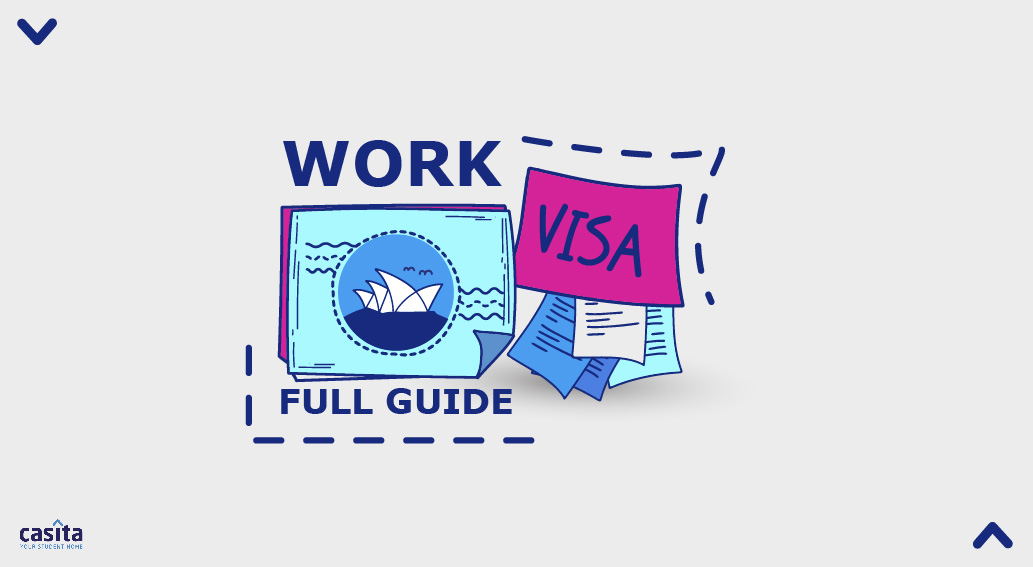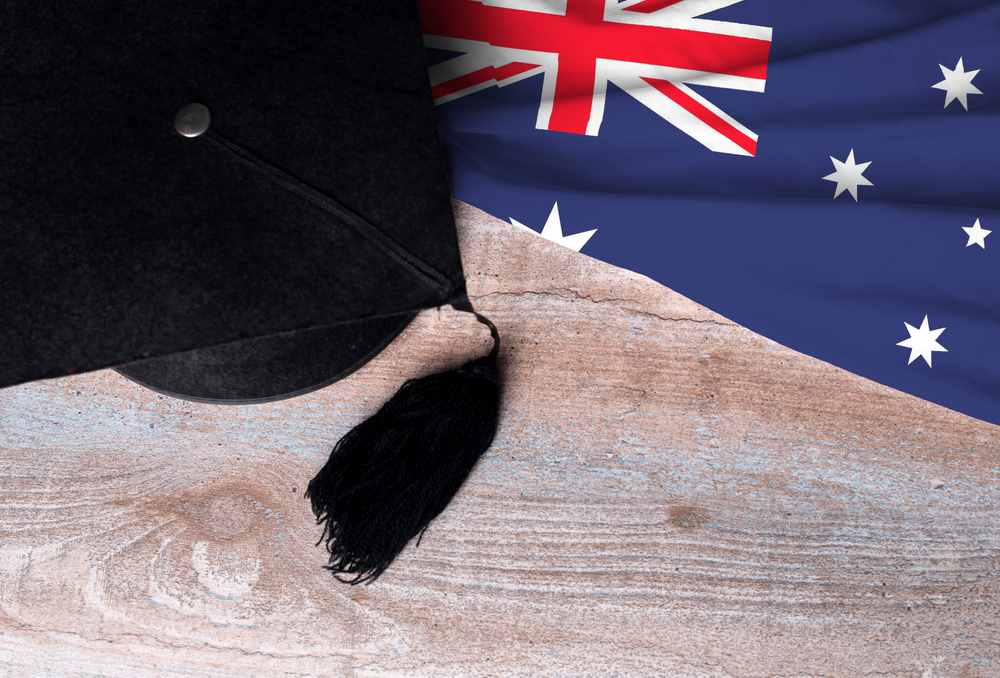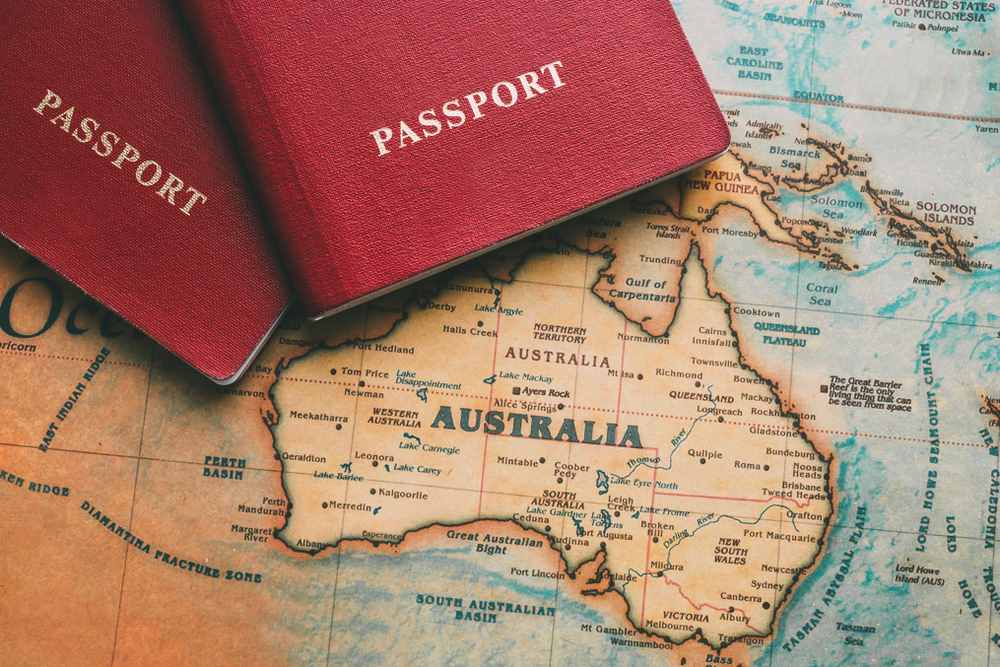Post Study Work Visa Australia: A Full Guide
Tips and Advice
Travel Preparation
13 mins read
Share

Updated at: 16 December, 2024
Published at: 11 July, 2023
By Reem Mohamed
Post Study Work Visa Australia: A Full Guide
Tips and Advice
Travel Preparation
13 mins read

Updated at: 16 December, 2024
Published at: 11 July, 2023
By Reem Mohamed
Share
As an international student in Australia, especially after making money doing part-time work in Australia, you find yourself wanting to extend your stay and maybe work in the country after graduation. This is made possible through Australia’s post-study work visa. This visa, which lasts from two to four years, allows students to stay longer in the country while pursuing a job or a career they’re passionate about.
In this article, we’re giving you the full guide on the post-study work visa in Australia, including who’s eligible for it, how to get it, its benefits, the duration of the process, how much it costs, and everything in between. So, let’s iron out all the details together before you apply!

Post Study Work Visa Australia
In order to get a post-study work visa in Australia, there are a few things you need to know to be prepared. Below are the most important highlights.
1. Who Is Eligible for The Post Study Work Visa Australia?
To get a post-study work visa in Australia, there are certain conditions that must be met, including the following:
You must be under 50 years of age.
You must have a certain visa.
This post-study work visa is only available to those who applied for and were granted their first student visa to Australia on or after November 5, 2011.
If you had your visa prior to the mentioned date, even as a child on your parents’ student visa, then you are not eligible to apply for this post-study work visa.
Eligible prospective visa applicants of subclass 485 can make their visa application outside Australia during the concession period, get approval, and be granted their visa while they are outside Australia.
You must be the main holder of a current student visa (But not one supported by the Defence or Foreign Affairs and Trade Ministers).
You held a student visa during the six-month period prior to your application and now hold a Bridging Visa A or Bridging Visa B, granted on the basis of a valid application for a visa.
You held a student visa during the six months preceding your application and now hold a substantive visa.
You are outside the country and hold or have held an eligible student visa (But not one supported by the Defence or Foreign Affairs and Trade Minister).
P.S. To qualify for this visa, you must have completed your course in the six months right before the day you apply.
This visa cannot be granted if you have previously been granted a subclass 485 or a subclass 476 visa as a primary visa holder.

You must hold an eligible qualification at a degree level or above; these qualifications are not tied to your field of study and are as follows:
Bachelor’s Degree
Bachelor's (Honours) Degree
Master by Coursework Degree
Master (Extended) Degree
Master by Research Degree
Doctoral Degree
You must meet the Australian study requirements. In the six months prior to applying for this visa, you must have met the Australian study requirement. These requirements are met if you are awarded at least one degree, diploma, or trade qualification and the following:
Your course was a Commonwealth Register of Institutions and Courses for Overseas Students (CRICOS)-registered course.
You successfully completed all course requirements.
Your study language was English.
You completed your course as a result of at least two academic years (92 weeks) of study.
You completed your course in Australia in not less than 16 calendar months.
You held an Australian study visa that allowed you to study.
P.S. Any student visa holders affected by COVID-19 travel restrictions can count online study towards the Australian Study Requirement.
In that case, your education provider must complete Form 1545 - COVID-19 Impacted Students (229KB PDF).
The completed and signed form must be attached to your Temporary Graduate visa application. Failure to attach this form when you apply may cause processing delays.
You must have studied with an Australian education provider.
Your course must have been with an Australian education provider that is registered on CRICOS and offers degree-level programmes.
You must hold a valid passport from the United Kingdom, the United States of America, Canada, New Zealand, or the Republic of Ireland. Or you prove your English language proficiency level with evidence that, in the last 3 years, you achieved:
International English Language Testing System (IELTS): Overall score of at least 6, with a minimum score of 5 for each of the 4 parts.
Test of English as a Foreign Language Internet-based Test (TOEFL iBT): Total score of at least 64 with a minimum score of 4 for listening, 4 for reading, 14 for writing, and 14 for speaking.
Pearson Test of English Academic (PTE Academic): Overall score of at least 50 with a minimum score of 36 for each of the 4 parts.
Occupational English Test (OET): At least B for each of the 4 parts.
Cambridge C1 Advanced test: Overall score of at least 169 with a minimum score of at least 154 in each of the 4 test components.
You must have adequate health insurance.
You must meet the health requirements.
You must meet the character requirements.
You must sign the Australian values statement. If you are 18 or older, you must do the following:
You must have read the Life in Australia booklet or had it explained to you.
You must sign an Australian Values Statement that confirms you will respect the Australian way of life and obey Australian laws.
You must not be indebted to the Australian Government.
You must have no previously cancelled or refused visa applications.
Your immigration history will be considered during the decision-making process on your application. So, you might not be eligible for this visa if you have had a visa cancelled or refused.
According to the Limitations on applications in Australia, you may still apply for a permanent visa if you have had a visa cancelled or an application refused.

2. How Long Does a Post Study Work Visa Australia Allow You to Stay?
As a temporary visa, the duration of your stay in Australia will depend on the level of your Australian study qualification.
Bachelor's Degree (including honours): 2 years
Masters by Research and Masters by Coursework: 3 years
Masters (Extended): 3 years
Doctoral Degree: 4 years
Hong Kong and BNO passport holders who successfully complete a bachelor, master, or doctoral degree: 5 years
3. Can You Stay Longer than the Granted Time?
You can't stay in Australia longer by extending this visa. However, you may qualify to apply for a second post-study work stream visa. To be able to do this, you must live, work, and/or study in a regional area while holding your first post-study work visa. That visa must have been granted on the basis of a degree or higher from an Australian institution located in a regional area. As for current and future temporary graduate visa holders from Hong Kong, they may also have a pathway to permanent residency after 5 years. You might also be eligible for other skilled work visas.
4. Can You Include Your Family?
You can include members of your family in your application for the post-study work visa in Australia. These family members must meet the health and character requirements prior to applying. Only your children can be added to the application until a decision on your application is made. Other family members, however, cannot be added to the application during this period. After you are granted your visa, your family can also apply to join you in Australia as a subsequent entrant.

5. How Much Does the Application Cost?
For the main applicants, the visa application costs AUD1,730.00.
An extra charge is applied to each family member who applies with the main applicant.
As for subsequent entrants, the full visa application charge must be paid.
Other costs like health checks, police certificates, and biometrics might also have to be paid.
The subclass 485 visa is exempt from the subsequent Temporary Application Charge.
You can use the visa pricing estimator to calculate all the fees you are required to pay.
Your application can’t be processed if you do not pay the correct visa application charge. You will be notified if this is the case and if it is necessary to return your application.
6. Where Can You Apply from?
You can apply from inside Australia, but not for immigration clearance, both when you apply and when you are granted the application. If you are a graduate who was impacted by COVID-19 travel restrictions, you may also be able to apply for and be granted this visa outside Australia. Subsequent entrants, though, can be in or outside Australia when they apply and when they are granted the visa.
7. How Long Does the Visa Take to Process?
The post-work study visa in Australia has the following processing times:
25% of applications: Less than 1 day
50% of applications: 14 Days
75% of applications: 30 Days
90% of applications: 6 Months
The application processing may take longer for the following reasons:
You did not fill out the application correctly.
More information is needed from you.
Verifying your information takes longer than expected.
8. Can I Travel Outside of Australia as a Post-Study Work Visa Holder?
You can travel outside Australia and return as many times as you want while the post-study work visa is valid. The time you spend outside Australia, however, does not extend your visa.
9. What Can You Do with This Visa?
As a holder of a post-study work visa in Australia, you can do the following:
You can stay in Australia for between 2 and 4 years after you have finished your studies.
You can travel, work, or study in Australia during your stay.
The Australian Government, however, is not responsible for arranging employment; you must land your own employment while on this visa.
10. What is The Step-by-step Procedure for Getting a Post Study Work Visa Australia?
To get your post-study work Visa in Australia, you have to follow the following five steps:
Step 1: Before the application: You must start the process just after your education provider has confirmed the successful completion of your course. You must apply for this visa within 6 months of the official date of completion. Here’s what you need to do:
You must make sure you have a valid passport.
You must check your visa conditions. If you have a current visa with a “no further stay” condition (8534 or 8503 on your current visa), you can’t apply for this visa online. You will need to apply for and have the condition waived using Form 1447 No Further Stay Waiver (447KB PDF). You will then need to submit an ImmiAccount technical support form.
You must organise and complete a number of health examinations.
You can get help with your application by appointing someone to give you immigration assistance; this person must be a registered migration agent, a legal practitioner, or an exempt person. You can also appoint someone to receive documents on your behalf relating to your visa matter. You must also disclose that you’re getting help.
Step 2: You need to gather all your documents
You need to provide accurate information.
You must provide the pages of your current passport showing your photo, personal details, and passport issue and expiration dates.
You should also provide the following documents:
A national identity card, if you have one.
Proof of a change of name, including a marriage or divorce certificate, change of name documents from an Australian Registry of Births, Deaths, and Marriages or the relevant overseas authority, and documents that show other names you have been known by.
You should provide a letter from your education provider stating the following:
The date the course started.
The date you completed the course.
Your education provider's CRICOS code.
A certified copy of your course transcripts should also be provided.
If you have had any credit applied to your course and you want to use the credit to meet the Australian study requirement, you must also provide those course details. You must prove that your credit meets the Australian study requirement.
You must have taken an English test in the 3 years prior to your visa application. You must provide your English language test results, proving your English proficiency.
You must provide the following health insurance documents:
A signed letter from a health insurance provider.
A Medicare card or proof of your enrollment in Medicare.
Evidence of health insurance.
Applicants over 16 years of age must provide evidence that they have applied for an Australian Federal Police check during the 12 months before they apply for this visa.
For character documents, you need to provide the following:
Form 80 – Personal particulars for character assessment (596KB PDF)
Form 1221 Additional personal particulars information (331KB PDF)
An overseas police certificate from every country, including your home country, where you spent a total of 12 months or more in the last 10 years since you turned 16 (If necessary).
Military service records or discharge papers if you served in the armed forces of any country (If necessary).

If you have a partner, you should provide the following documents:
Identity documents
Character documents
Documents about other family members, if applicable
If you are married, you should provide your marriage certificate or other evidence that your marriage is valid in Australia
If you are a de facto partner, you should provide proof of your de facto relationship that shows the following:
You have a mutual commitment with your partner to the exclusion of all others.
Your relationship is genuine and continuing.
You either live together or don't live permanently apart.
You are not related by family.
You had been in your de facto relationship for at least 12 months before you applied for this visa.
You should also provide evidence that your relationship is registered by a participating Australian state or territory, if applicable.
For every dependent 18 years old or younger who is applying with you, you should provide the following documents:
Copies of birth certificates or the family book showing the names of both parents of all your dependent children.
Copies of the adoption paper, if applicable.
You must get consent for any applicant under 18 years of age to migrate to Australia from anyone who has a legal right to decide where the child lives and is not coming to Australia with the child.
You can also show an Australian court order that allows your child to migrate to Australia, or that the laws of your home country allow them to migrate.
To apply with a dependent who is over 18, they must be:
Over 18 years of age but not yet turned 23, and dependent on you or your partner.
Or over 23 years of age and unable to earn a living to support themselves due to physical or cognitive limitations and dependent on you or your partner.
If the dependent is about to turn 23 while your application is being processed, you will have to provide evidence they are dependent on you due to disability, including the following:
A copy of their birth certificate to prove their relationship to you.
Documents about their other relationships (If necessary).
Identity documents
Character documents
Proof of your relationship with the dependent, such as a birth certificate or adoption papers.
A completed Form 47a Details of a child or other dependent family member aged 18 years or over (307KB PDF).
Proof of financial dependencies such as bank statements, money transfers, and rent receipts.
If the child is aged 23 or is likely to turn 23 while your application is being processed, you must also provide a report from a qualified medical practitioner that states they are dependent on you or your partner due to the total or partial loss of their bodily or mental functions.
You should have all your documents prepared and translated into English.
You should scan or photograph all your documents clearly and in colour.
-min.jpg)
Step 3: Apply for the visa online
Create or log in to ImmiAccount.
Attach documents
Pay the visa application charge.
Submit your application; you must pay for yourself and your family members, or your application will not be valid.
A valid application must be submitted within the eligibility timeframe. Late applications will not be accepted.
Applications are received at Australian Eastern Standard Time (AEST) or Australian Eastern daylight standard time (AEDST) when applicable.
Reminder: This stream is only available if you applied for and were granted your first student visa to Australia on or after November 5, 2011.
The following information should be attached to your application:
Evidence of successful course completion
Evidence of the required level of English
Evidence that all applicants over the age of 16 have applied for an AFP check
Evidence of adequate health insurance for all applicants
Step 4: After you apply
If you want a status update within standard processing times, do not call. No further updates on the application's progress can be provided.
If you want to travel outside Australia while your application is being processed, you must notify the responsible authorities, as you have to be in the country when a decision is made. Also, make sure you have a valid visa to return if you choose to leave the country.
You will be notified if you need any more health examinations.
If you did not attach all documents when you submitted your application, attach them as soon as you can in ImmiAccount.
You should make sure you stay lawful by holding a valid visa while we process your application.
You can also add your child to your visa while it’s still processing, as mentioned above.
If you’ve made a mistake on your application, you should notify the responsible authorities as soon as you can.
If you no longer wish to have help from someone throughout your application process, also notify the responsible parties.
If any of the following things change, the responsible parties should be in the loop:
Changes to your phone number, email, address, or passport
Changes to your marital or de facto status
Changes to your work
The birth of a child
If you want to withdra
w your application.
Step 5: Visa Outcome
When a decision is made, you can be inside or outside Australia, but not in immigration clearance.
If you are a subsequent entrant (family member), you can be in or outside Australia when we decide on your application.
You will receive a decision about your visa application in writing. If you are granted the visa, you will be told the following and should keep a copy of the email with you while in Australia:
Your visa grant number
The date your visa starts
Your visa conditions
If your visa is refused, you will not get a refund; however, you will be told why it was refused and have a right to a review of the decision.
So, if you are an international student currently doing part-time work in Australia and would like to commit to it after graduation, then you should start looking into the process of applying for your post-study work visa in Australia. Using this guide, the application process should go off without a hitch! In the meantime, if you are looking for work on a student visa, check out this guide.

Frequently Asked Questions
How long is the post study work visa for Australia?
Based on the qualifications, Australia's post-study work visa usually lasts two to four years.
Can I get work visa in Australia after student visa?
You can get a post-study work visa in Australia for two to four years. You can apply for this visa within 6 months after completing your courses.
What is the average salary in Australia after Masters?
The average master's salary in Australia is $122,087 per year, or $62.61 per hour. Entry-level positions start at $92,456 annually, while most experienced workers make up to $160,000 annually.
Is it easy to get a job in Australia on a student visa?
It is very easy to get a job in Australia while being a student. There are several options for jobs for international students who are studying in Australia.
How much a student can earn in Australia per month?
International students in Australia working full-time in administration and office jobs can earn between AUD 800 and AUD 1,200 per week, while international students working full-time as tutors can earn between AUD 1,000 and AUD 2,000 per week.
Tips and Advice
Travel Preparation
By Reem Mohamed
Share
Tips and Advice
Travel Preparation
Updated at:
Published at:
By Reem Mohamed
Share


